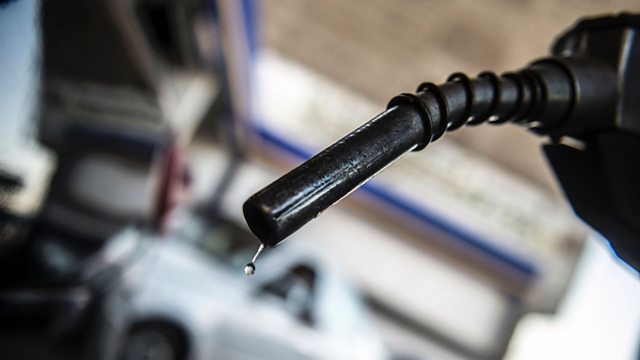Leaded Petrol
When lead was added to petrol it made cars more powerful and was, its advocates said, a βgiftβ. But lead is a gift which poisons people; something known as long ago as Roman times
In the 1920s lead was added to petrol. It made cars more powerful and was, according to its advocates, a βgiftβ. But lead is a gift which poisons people; something figured out as long ago as Roman times. Thereβs some evidence that as countries get richer, they tend initially to get dirtier and later clean up. Economists call this the βenvironmental Kuznets curveβ. It took the United States until the 1970s to tax lead in petrol, then finally ban it, as the country moved down the far side of the environmental Kuznets curve. But as Tim Harford explains in this astonishing story, the consequences of the Kuznets curve arenβt always only economic.
Producer: Ben Crighton
Editors: Richard Knight and Richard Vadon
(Image: Petrol Nozzle, Credit: Khaled Desouki/AFP/Getty Images)
Last on
Sources and related links
Gerald Markowitz and David Rosner - Deceit and Denial: The deadly politics of industrial pollution, University of California Press, 2013
William J. (Bill) Kovarik, Ph.D. dissertation - The Ethyl controversy: How the news media set the agenda for a public health controversy over leaded gasoline, 1924-1926, University of Maryland
Kassia St Clair - The Secret Lives of Colour, John Murray, 2016
Broadcasts
- Sat 8 Jul 2017 02:50GMTΒιΆΉΙη World Service except Online, Australasia, News Internet & UK DAB/Freeview
- Sat 8 Jul 2017 19:50GMTΒιΆΉΙη World Service except East and Southern Africa, News Internet & West and Central Africa
- Mon 10 Jul 2017 03:50GMTΒιΆΉΙη World Service Online & UK DAB/Freeview only
Podcast
-
![]()
50 Things That Made the Modern Economy
The stories of inventions, ideas and innovations which helped create the economic world


